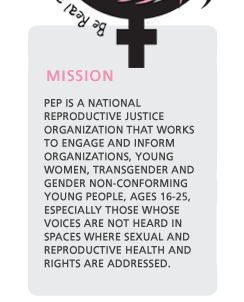The women had been speaking to us for over an hour. The younger woman was listening to a question from a fellow student when she suddenly turned to the group and asked, �Est�n contra trabajo sexual? [Are you all against sex work?]� I have to admit, I wasn�t prepared for the question, and I had grown an immense admiration for the organizing and courage of the sex workers sitting in front of me. Would being against sex work mean being against the women and men who do the work? And then Rayo answered my ques tion, �Pensamos que en un mundo mejor, trabajo sexual no existe. [We think that in a better world, sex work does not exist.]� This is a partial narrative of the experience I had with sex-workers in Mexico. Sex-work, the chosen term for people who work in the stigmatized prostitution industry, is a complicated issue, and one that involves many different individuals. But through my close interactions with one sex-workers union in Mexico, I have learned a great deal about both the dignity of the workers and the hypocrisy that they are faced with in the industry.
For the fall of my third year of college, I studied in Mexico, and for part of that semester I was staying with a campesino (farmworker) family in Toluca de Guadalupe, a rural community in the state of Tlaxcala. Tlaxcala is kind of like the Rhode Island of Mexico. That is, it�s the smallest state (although in land size it�s a bit bigger than RI). It�s also near the capital, just a couple hours in a car heading east from Mexico City.
The family that I was staying with belongs to Consejo Nacional Urbano Campesino (CNUC), the National Urban and Campesino Council, which has a huge presence in Tlaxcala helping communities to organize by building community enters, working to retain the wages of ex-braceros (laborers)�who are tough old guys!� getting state funding for youth computer education programs, responding to natural disasters, and all kinds of things. CNUC�s on-going and fundamental work involves organizing campesinos to obtain essential fertilizers for their crops and to access markets in a world economy that is shutting out small production. �Vamos a ir a un reuni�n a las siete con las Trabajadoras Sexuales [We are going to a meeting at seven with the Sex Workers],� I told J�lia, my homestay �mom�.
�Bueno. �Ma�ana, a qu� hora quieres desayuno? [Ok. What time do you want breakfast tomorrow?]� she replied.
�A las ocho y media, por favor. �Hasta ma�ana! [8:30, please. See you tomorrow!]�
I said.
In Apizaco, a small city half an hour from Toluca, CNUC has an office, more of a room for meetings. The fifteen of us on the Mexico Solidarity etwork study abroad program had moved our chairs into a lopsided circle before the women came. There were three representatives from Colectivo Red de Mujeres en Pro de sus Derechos (CRMPD), the Women�s Rights Network Collective.
The youngest of the three, Rayo, was the most outspoken; she spoke fast with authority and sincerity. And after we had gone around stating our names and where we were from, one of the first things that she told us was, �No somos prostitutas. Los pol�ticos son las prostitutas. [We are not prostitutes. The politicians are the prostitutes.]� Rayo explained further: �Nosotros decimos que somos trabajadoras sexuales y no prostitutas. Prostitutos y prostitutas son las autoridades gubernamentales que se venden a los ricos para hacer leyes que beneficien a los poderosos y perjudiquen a los pobres. All� arriba son ellos y ellas quienes vendemos dignidad, y nosostros no denedmos nuestra dignidad y exigimos que se nos repsete. [We say that we are sex workers and not prostitutes. Prostitute men and women are the government authorities who sell out to the rich and create laws that benefit the power ful and harm the poor. They are the ones who sell their dignity; and we do not sell our dignity and we demand respect.]� And it was with dignity that the three women spoke to us of the problems that they faced individually and as sex workers, their vision of the world and poverty, and how they had organized to overcome
some
of these obstacles.
There are currently twenty women sex workers in CRMPD, the sex worker�s union that is part of CNUC. Some were born in Tlaxcala but many came from other parts of M�xico. In Apizaco, pretty much the only jobs available are in the maquilas in the industrial parks on the outskirts of the city. And anyone walking down the street will tell you that if you want to make money, if you need to support a family, the maquila is not the place to do it. The women of CRMPD are mostly single mothers with more than one child to support. They explained to us that capitalism causes people to be poor, while the capitalists get richer.
The 1917 Constitution of Mexico does not make sex work illegal, but it does make it illegal to exploit people for sex. Pimping is illegal. In reality, however,the pimps are the ones with the politicians in their pockets, and the sex workers are the ones who face harassment, detainment, fines, and exploitation from the authorities. Before the sex workers of Apizaco approached CNUC with their desire to form a union, the police regularly extorted money from the women, and in exchange they were not arrested. Or they usually were not arrested. They also faced violence from their customers, often when they insisted on using condoms. Adequate health care and information was also difficult to access.
When the women approached CNUC, they were not automatically welcomed with open arms. While many were supportive of the proposal, others met it with hostility. The organization entered into an educational process of connecting the exploitation of sex workers with the struggles of campesinos and decriminalizing this extremely marginalized population. One result of this, I experienced with my family in Toluca who took it in stride when I told them about the meeting. Another result was the formation of Colectivo Red de Mujeres en Pro de sus Derechos (CRMPD).
CRMPD has been organized for over a year now and has been able to do many things that were not possible before. They no longer pay extortion to the police, and they use cellphones to communicate and insure their safety. While working, they keep tabs on one another, and if a client is violent, they use their cellphones to call for help. An ally, Doctor Luis, is always on call. CRMPD organizes workshops on women�s health, and CNUC has helped them access resources for getting free condoms. They�ve also established connections with other organizations.
They are now a part of La Red Mexicana de Trabajo Sexual [The Mexican Sex Worker�s Network] and send representatives to national conferences. They have contacts with sex workers in Spain and Brazil. And last February they joined La Otra Campa�a, a national campaign against neoliberal capitalism initiated by the Zapatistas, an indigenous movement in Chiapas, Mexico. The women of CRMPD have asserted their dignity, and through this they have become a visible art of the community in Apizaco, in CNUC and Tlaxcala, throughout Mexico, and within the international movement of sex workers. �Mi fam�lia lo sabe y no le da verg�enza, [My family knows and they�re not ashamed],� one said and they all nodded.
After the meeting, the women of CRMPD got into our professor�s van with us to catch a ride back to the center of town. When we got there, they turned to us and asked if we�d like to see where they work. We followed them across the street and entered an unmarked door that I�m sure I had passed at least three times while walking around the city. There was a couch and another room that was separated by a curtain, and they were concerned that we didn�t all have a place to sit. There was a loud knocking on the door, and one of the women called out, ��No hay servicio!� Sitting in the little house in the center of Apizaco, I knew it in my head and could feel it in my bones: this is not a place where dignity is sold. | 





